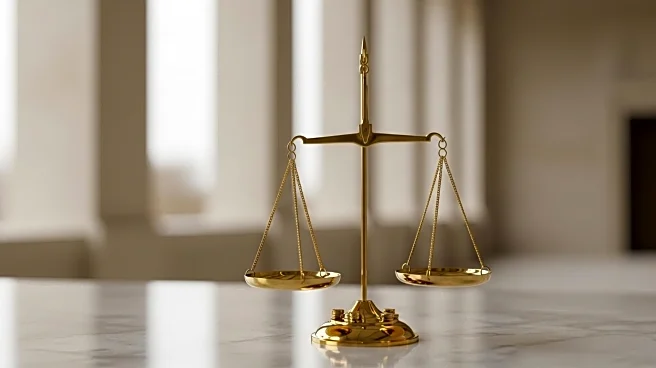What's Happening?
The Supreme Court has permitted the Trump administration to cut $4 billion in foreign aid, a move that bypasses formal congressional approval. This decision follows procedures from the Nixon era designed to maintain congressional control over budgetary decisions. The court's unsigned order stayed a lower court's mandate that required the government to disburse the funds before their expiration at the fiscal year's end on September 30. Justices Elena Kagan, Sonia Sotomayor, and Ketanji Brown Jackson dissented, expressing concern over the court's intervention in this significant legal issue, which has not been previously addressed by the high court. The majority opinion suggested that the plaintiffs, international aid groups, lacked legal standing to access the funds, as the administration had initiated the formal process of rescinding the money under the Impoundment Control Act. This process can extend up to 45 days, potentially surpassing the September 30 deadline, leading to the funds' expiration.
Why It's Important?
The Supreme Court's decision has significant implications for the separation of powers between the executive and legislative branches. By allowing the executive branch to halt the disbursement of congressionally appropriated funds, the ruling challenges the traditional budgetary authority of Congress. This decision could set a precedent for future executive actions to bypass congressional approval in budgetary matters, potentially altering the balance of power. The expiration of these funds means that intended foreign aid recipients will not receive the support, impacting international relations and humanitarian efforts. The dissenting justices highlighted the conflict with the separation of powers, emphasizing the importance of maintaining congressional authority over fiscal decisions.
What's Next?
The legal dispute over the rescission of funds will continue in lower courts, despite the funds' expiration. The ongoing litigation may further clarify the legal boundaries of executive power in budgetary matters. Republican lawmakers have shown little interest in acting on the administration's rescission request, indicating that the funds will likely expire without congressional intervention. The case may prompt legislative efforts to address the implications of 'pocket rescission' and reinforce congressional control over budgetary decisions.
Beyond the Headlines
The Supreme Court's decision raises ethical and legal questions about the executive branch's ability to unilaterally alter budgetary allocations. This development could lead to increased scrutiny of executive actions that bypass legislative processes, potentially prompting calls for reform to ensure accountability and transparency in government spending. The ruling may also influence future judicial interpretations of the Impoundment Control Act and its application in budgetary disputes.









